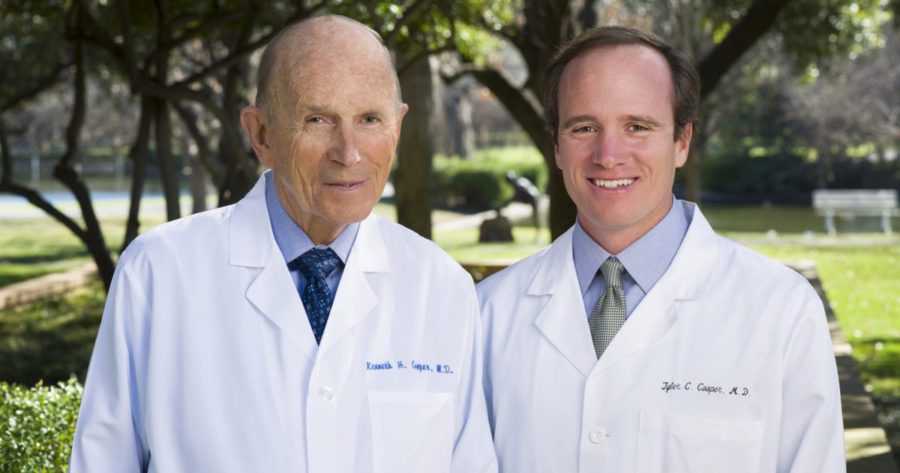About Cooper Complete

Kenneth H. Cooper, MD, MPH, launched Cooper Complete in 1997, working with a team of physicians and scientists from leading universities to develop a line of vitamins and supplements to address the weaknesses found in many products on the market.
The foundation for Cooper Complete Nutritional Supplements was established by Dr. Cooper when he opened the now world-renowned Cooper Clinic in 1970. Universally recognized as the “Father of Aerobics,” Dr. Cooper has helped millions of people improve the quality and quantity of their lives through his groundbreaking work establishing the link between cardiorespiratory fitness, good health and longevity.
For many years, Dr. Kenneth Cooper promoted that 21st-century medicine should concentrate on proper weight, nutrition, exercise and supplementation. While the role exercise, nutrition and weight played in disease had been well-documented, that wasn’t the case for supplementation.
As a result of the Dietary Supplement Health and Education Act (DSHEA) in 1994, the FDA had no control over vitamins, as they were considered to be food, not medicine. “As a result, the vitamin industry was not controlled and there was no assurance the vitamin contained the ingredients listed on the label,” says Dr. Cooper.
In the early 1990s, Dr. Cooper started studying the impact of exercise and supplementation on health. He had seen a report that 40 percent of the 2,300 runners in the 1987 Los Angeles Marathon had been ill with a cold or the flu during the two months preceding the race. Concerned excessive exercise might be part of the problem, Dr. Cooper researched the issues, which confirmed his concern. He found excessive amounts of exercise did not provide the health benefits moderate intensity exercise provided and that vitamins and supplements played an important role in supporting optimal health and athletic recovery.
“In 1994, I released the book, Antioxidant Revolution, showing that vitamin supplementation could reduce free radical damage that potentially could have a great effect on a multitude of diseases, including cancer,” says Dr. Kenneth Cooper. “For all of those reasons, I felt it necessary to have vitamins as a ‘form of insurance.’ Remember, vitamins are not a replacement for good food and should be used in conjunction with, not in place of, proper nutrition.”
Shortly after the publication of The Antioxidant Revolution, Dr. Cooper gathered together leading researchers from around the country, and with the physicians and registered dietitian nutritionists at Cooper Clinic, asked the team to formulate a multivitamin and mineral supplement that would deliver the appropriate amount of nutrients needed for optimal health.
When the line was released, it contained just two multivitamin products: Cooper Complete Original and Cooper Complete Original with Iron. Now led by Dr. Cooper’s son, Tyler C. Cooper, MD, MPH, Cooper Complete Nutritional Supplements offers several dozen products, with five multivitamins and a variety of wellness essentials, including supplements with focused ingredients to help support brain health, immunity, heart health, mood and stress, and bone and joint health.
The goal established in 1997 remains the same—to offer products formulated to deliver the appropriate amount of nutrients for optimal health. Each ingredient and the level of the ingredient is carefully considered based upon the overall body of scientific research before its inclusion in any product. Once there, the pressure continues. Each product (and associated ingredients) is regularly reviewed by our team of physicians, researchers, and registered dietitian nutritionists and adjusted as needed based upon the latest overall body of scientific research.
Cooper Complete Nutritional Supplements is a part of the Cooper Aerobics Enterprises organization, a physician-founded enterprise operating under the singular mission of improving the quality and length of people’s lives. Cooper Complete is simply one way that the Cooper organization delivers on that mission.
